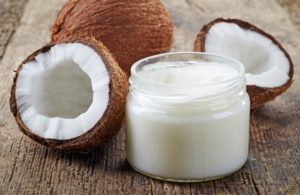Saturated fats. A term that for decades has been associated with ill health. But, what are these saturated fats? Should they be avoided? Let’s find out…
Saturated fats are found mostly in animal fats and tropical oils — oils like coconut oil and palm oil. There are short chain saturated fats include butter and milk fat. There are medium chain saturated fats, include coconut and palm oils. And there are long chain saturated fats. These are contained in beef, mutton, pork, dairy, and cocoa butter which is the butter from the cocoa or chocolate bean.
These distinctions allow us to see that not all saturated fats are the same. Do you think that might mean that they do different things in the body? Absolutely. NOT all saturated fat is bad for our health.
Consider these facts:
- All saturated fats produce energy.
- They provide the building blocks for your hormones.
- Saturated fats slow down the absorption of your meals so you can go longer without feeling hungry and maintain your even blood sugar — one of the core basics of our health.
- Saturated fats are carriers and contain the necessary fat-soluble vitamins.
- Those include vitamin A, the touted vitamin D, vitamin E, and vitamin K.
- Saturated fat helps convert carotenes to vitamin A.
- This is a difficult conversion for several categories of people including children, the elderly, and those with thyroid disorders.
- The short chain saturated fats are easy to digest and people with liver and digestive disorders benefit from inclusion of them in their diet.
- The short chain saturated fats help feed friendly bacteria in our colon.
- The medium chain saturated fats help to inhibit the growth of yeasts like Candida.
- The medium chain saturated fats are not stored as fat in the body. They actually create thermogenesis, or heat, in the body and boost metabolism.
The medium chain saturated fats also boost your immunity. You’ll see more of that in relation to coconut oil and its make-up of constituents such as lauric acid. Lauric acid is also present in breast milk — and in coconut oil. It’s one of the great immune boosters.
The medium chain saturated fats are needed for proper utilization of the essential fatty acids. They work in tandem. Synergistically. Even the heart (supposedly hurt by the inclusion of saturated fats in the diet), thrives on reserves of saturated fat in times of stress.
It is possible for the over consumption of the long chain saturated fats to get sticky under certain circumstances, and this over consumption in a particular terrain can become a factor that promotes clogging in the arteries if the rest of the diet is not balanced.
Most fat digestion happens in the small intestine. The small intestine is where the triglycerides is broken down or separated into their fatty acid and glycerol molecules.
Within the intestinal wall, those parts of the triglyceride are reassembled back into triglycerides. Right there in the wall! The triglycerides with longer chains are packed in a protein coating. That protein coating is called a lipoprotein. You may have heard of this in terms of high-density lipoprotein or HDL and low-density lipoprotein or LDL. Lipoprotein, that coating, allows the long chain fat to be carried into your blood.
The curious part is that short and medium chain saturated fats, like those in butter or ghee, (which is clarified butter with the milk protein removed), and coconut oil does not need to go through this coating process. These short and medium chains move across the intestinal wall coating and can maneuver through the blood where they then naturally bind with proteins there.
Why am I telling you all this biochemical detail? Specifically, to illustrate again that not all saturated fats affect us in the same way.
Your body can actually turn excess sugars into the sticky and degenerative fats. Here’s how sugars become fat inside your body . . . Excess glucose that is not used for energy — and all our sugars are made up of some part glucose — is stored as glycogen in the liver and in the muscles. Glycogen is basically stored glucose.
When the liver is saturated or stuffed with glycogen, the excess (the stuff your body does not deem necessary for storing for times of need), gets converted into triglycerides . Those triglycerides are then released into the blood stream and stored as fat.
This is why eating excess carbohydrates, especially refined carbohydrates which break down more quickly to glucose and not fat, is what raises triglyceride levels, makes us fat, causes diabetes, and is a precursor to heart disease.

